KEEPING YOUR TOOTHBRUSH CLEAN – Why it really matters:
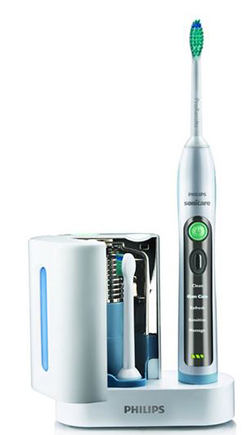 You probably have no clue how much gross stuff is hiding on your toothbrush.
You probably have no clue how much gross stuff is hiding on your toothbrush.
That humble implement meant to help you clean your teeth, get rid of plaque and prevent cavities may harbor such hazards as Staphylococci, coliforms, yeasts and intestinal bacteria, according Dr. Koshki and his dental colleagues.
“The oral cavity is home to hundreds of different types of microorganisms, which can be transferred to a toothbrush during use,” Dr. Koshki tells us.
And some of these organisms can cause dental decay and periodontal disease — the two major dental diseases in adults.
But wait, there’s more. Your toothbrush may even carry fecal germs.
“Most toothbrushes are stored in bathrooms, which exposes them to gastrointestinal microorganisms that may be transferred via a fecal-oral route,” says Dr. Koshki.
These organisms, called enteric bacteria, can transfer to toothbrushes and into people’s mouths due to inadequate hand-washing or the microscopic droplets released from the toilet during flushing.
The Discovery Channel TV show “Mythbusters” tested 24 toothbrushes and found enteric microorganisms on all of them — even those that had not been inside of a bathroom.
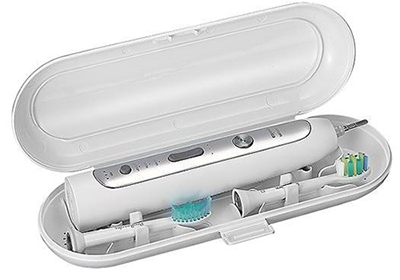 So what can you do to help reduce these dangers and keep the gross stuff off your brush and away from your mouth? Dr. Koshki offers these tips–
So what can you do to help reduce these dangers and keep the gross stuff off your brush and away from your mouth? Dr. Koshki offers these tips–
Clean your brush. You should thoroughly rinse toothbrushes with potable tap water after brushing to remove any remaining toothpaste and debris. Dr. Koshki also recommends soaking your toothbrushes in an antibacterial mouth rinse.
Store the brush properly. Leave your toothbrush in an upright position and allow it to air dry. Don’t store the brush in a closed container because a damp environment is more conducive to the growth of microorganisms. If more than one brush is stored in an area, keeping them separate to prevent cross-contamination.
Buy a new brush often. Toothbrushes should be replaced at least every three to four months or when bristles become frayed and worn, whichever comes first.
Don’t share! This seems like a no-brainer, but a large proportion of spouses admit to sharing toothbrushes, meaning that they are also sharing the bacteria on those brushes.
Get a new brush if you’ve been sick. Any illness that can be transmitted through body fluids should warrant separation of the toothbrush of the infected individual and, if economically feasible, replacement of the toothbrush after the illness.
Wash, wash, wash! And please, wash your hands after using the toilet and prior to using your toothbrush.
Dr. Koshki also recommends that people use mouth rinse prior to brushing and get routine dental care, including regular cleanings.
Your best bet against bacterial contamination of your toothbrush is Sonicare FlexCare Platinum Plus – featuring a UV sanitizer. We proudly provide the opportunity for our patients to purchase this excellent toothbrush in office. Check our Seasonal Specials for rebates and coupon offers.
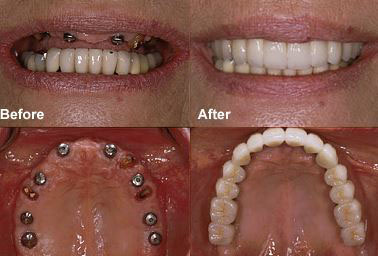





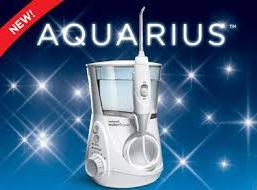 We are excited to announce that the Waterpik Aquarius Professional Water Flosser is now available for purchase at our office! This is the very latest technology from Waterpik and this unique device is loaded with features to help take your teeth cleaning and gum care to a whole new level. Think you know Waterpik? Well things have changed for the better with a hand held control over water flow, 7 tips for customized care, and more. Several important studies at USC prove that the Waterpik is effective in keeping biofilm off of our teeth at the gumline and even in between the teeth!
We are excited to announce that the Waterpik Aquarius Professional Water Flosser is now available for purchase at our office! This is the very latest technology from Waterpik and this unique device is loaded with features to help take your teeth cleaning and gum care to a whole new level. Think you know Waterpik? Well things have changed for the better with a hand held control over water flow, 7 tips for customized care, and more. Several important studies at USC prove that the Waterpik is effective in keeping biofilm off of our teeth at the gumline and even in between the teeth!

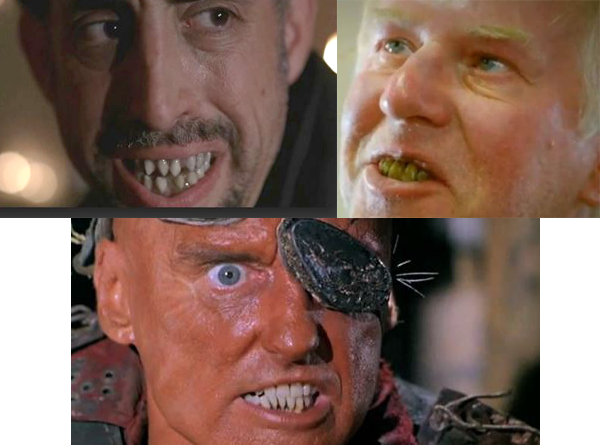
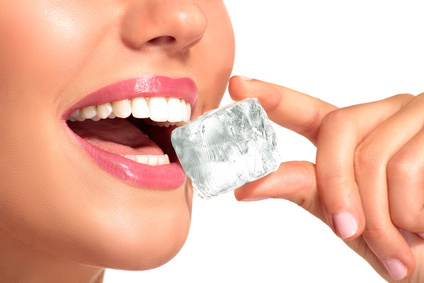 THEY WEREN’T BUILT FOR IT!
THEY WEREN’T BUILT FOR IT! If you’ve ever had a sensitive tooth or receding gums where the roots were beginning to become exposed, you know exactly how extraordinarily painful mouth problems can be. And if you’re a chronic sufferer, you’re probably ready to try just about anything to rid yourself of the pain. Gum disease can cover many problems, from swelling, redness, bleeding and pain to receding of the gums — all of which CoQ10 is said to be able to treat. So should you begin loading up on the CoQ10 supplements?
If you’ve ever had a sensitive tooth or receding gums where the roots were beginning to become exposed, you know exactly how extraordinarily painful mouth problems can be. And if you’re a chronic sufferer, you’re probably ready to try just about anything to rid yourself of the pain. Gum disease can cover many problems, from swelling, redness, bleeding and pain to receding of the gums — all of which CoQ10 is said to be able to treat. So should you begin loading up on the CoQ10 supplements? You probably have no clue how much gross stuff is hiding on your toothbrush.
You probably have no clue how much gross stuff is hiding on your toothbrush. So what can you do to help reduce these dangers and keep the gross stuff off your brush and away from your mouth? Dr. Koshki offers these tips–
So what can you do to help reduce these dangers and keep the gross stuff off your brush and away from your mouth? Dr. Koshki offers these tips–
